The importance of having the right hotel marketing strategies is difficult to overstate, as it is a key part of launching a hotel, optimizing the number of bookings you generate, building brand awareness, and managing your reputation. In this article, you will learn more about some of the essential strategies to adopt at all times.
Table of Contents:
- 26 Essential Hotel Marketing Strategies
- 1. The Most Important Distribution Channel: Your hotel website
- 2. Add a Direct Booking Channel to Your Website
- 3. Follow The SEO Staples
- 4. Implement a Hotel Chatbot on Your Website
- 5. Let Potential Guests & B2B Clients Experience Your Hotel From a Distance
- 6. Differentiate Yourself From The Rest
- 7. Get Savvy With Social Media
- 8. Influencer Marketing
- 9. Get Recommended by Real Authority
- 10. Loyalty Programs
- 11. Promote Yourself With Online Travel Agencies
- 12. Global Distribution Systems
- 13. Make Sure to Know Your OTAs Inside-Out
- 14. Appoint a Sales Rep and Reap The Rewards
- 15. Keep an Eye on Reviews and Recommendations
- 16. Personalization Marketing
- 17. Invest More During High Season
- 18. Mobile Optimization & Mobile Marketing
- 19. Automated Email Marketing Campaigns
- 20. Target Audience Identification
- 21. MICE Hotel Marketing Solutions
- 22. Reputation Management
- 23. Cultivating Local Partnerships
- 24. Establishing a Brand Identity
- 25. Making Use of Promotions
- 26. Engaging With Your Online Community
- The Latest Hotel Marketing Trends in The Hotel Industry
- Want to Learn More About Hotel Marketing Strategies?
26 Essential Hotel Marketing Strategies
Adopting the right hotel marketing strategy in the right situation is crucial, but some strategies are applicable at all times, too. Below, you will see a breakdown of some “all-time” hotel marketing strategies and strategies that respond to the coronavirus pandemic and associated changes to consumer behavior.
1. The Most Important Distribution Channel: Your Hotel Website
In addition to having an appealing and functional website, one of the most critical hotel marketing strategies is ensuring your website is in keeping with modern user expectations.
According to Hotel Tech Report, direct bookings through hotel websites generate 15-25% higher profit margins compared to third-party bookings due to eliminated commission fees. The average commission rate for online travel agencies ranges from 15-30% which make direct bookings significantly more profitable.
Cameron Sperance, a hotel industry expert at Skift, says:
“Hotels that invest in their website experience see direct booking rates increase by up to 30%.”
To get these results, your website should be user-friendly, easy to understand and navigate, and should use up-to-date security features. Support multiple payment options and try to make the entire user experience as friction-free as possible. Prioritize accessibility, too, which could include using a colorblind-friendly palette and ensuring text can all be read aloud using a screen reader.
Lastly, website speed matters. Google found that 53% of mobile users leave a site if it takes more than 3 seconds to load. So, you must ensure your website loads quickly and is responsive across all devices, including computers, smartphones, and tablets. Otherwise, guests may go straight to an OTA or your competitors. The article “Tips To Gain More Bookings With Your Hotel Website“ describes more tips about creating a perfect hotel website.
Video: Hotel Website Design
2. Add a Direct Booking Channel to Your Website
Many of the best hotel marketing strategies are designed to generate direct bookings because these are much more profitable than bookings made through third parties, including OTAs. For this reason, it is essential to add a direct booking channel to your website and design the booking system to be easy to use.
According to Sojern’s Travel 2024 Insights Report, hotels with quick, mobile-friendly booking pages experience up to 25% higher conversion rates than those with slow or outdated systems.
Avoiding commission fees associated with OTAs is one of the reasons direct bookings are more profitable, but adding a direct booking channel to your website also gives you access to more customer data. This can then be used for upselling and cross-selling between the booking and the guest’s arrival. That said, you should also add upselling components to the booking process itself, so you can maximize revenue per customer.
Marriott International exemplified this strategy with its “Book Direct” campaign, which offered exclusive benefits like free Wi-Fi, mobile check-in, and the best rate guarantee. The campaign successfully shifted booking behavior, increasing direct reservations while enhancing brand loyalty.
As Fabian Bartnick, founder of Infinito and former VP of LodgIQ, puts it:
“The website is a channel, the booking engine a means to convert lookers into bookers. It’s key for any revenue manager to understand what can be done to improve either traffic or conversion across all devices.”
3. Follow The SEO Staples
There’s no point in having a website if it’s difficult for potential customers to find via their preferred search engine. Ensure you follow SEO (Search Engine Optimization) online marketing basics, such as ensuring your content is rich and relevant, with strong keywords and keyword combinations that give your website the best chance of being clicked. Consider likely search terms when planning your hotel marketing SEO campaigns. According to the State of Marketing Report by HubSpot, 88% of marketers who are already using SEO plan to continue using SEO strategies with similar or increased budgets.
Don’t forget to combine your main keywords with strong secondary ones, like the name of your local neighborhood or district. Successful brands like Accor Hotels and CitizenM run SEO campaigns by focusing on location-based content, FAQs, and multilingual optimization. The article “SEO Tips for Hotels to Improve your Ranking in Google“ describes more tips about how to rank your website higher in Google.
The Rise of AI Optimization (AIO)
While traditional SEO remains important, hotels must now also optimize for AI-powered search tools like ChatGPT, Google’s Search Generative Experience, and Perplexity. Modern travelers are asking detailed questions like “pet-friendly hotels in Tokyo with late check-out” rather than simple keyword searches. By 2025, over 40% of Gen Z travelers begin trip research on AI tools rather than Google alone, and 25% of frequent travelers have used ChatGPT for trip planning. Hotels need to structure their content to answer specific, conversational questions and ensure their information appears in AI-generated responses to stay visible in this evolving search landscape. In 2025 and beyond, being found by AI is just as important as being found on Google.
4. Implement a Hotel Chatbot on Your Website
Customer service forms a fundamental part of modern hotel marketing strategies, and customer expectations in this area are through the roof. Customers want rapid answers to questions at all times of the day, which is not always possible using human customer service agents. So why not implement a hotel chatbot on your website? Hotels that use AI for customer service see a 25% increase in direct bookings, according to HFTP statistics.
AI-powered chatbots can provide swift, automated, and natural-sounding answers to questions, can help to guide users through a booking experience, and can assist with price comparisons and other common queries. As a result, you can potentially improve resolution speeds and increase the amount of bookings you generate from your website. For example, the Radisson Hotel Group uses chatbots across multiple properties to reduce email volume and boost conversions. They’ve seen higher guest engagement and faster response times.

Alessandro Inversini, Associate Professor of Marketing and Director of the Institute of Customer Experience Management, Ecole hôtelière de Lausanne“Chatbots are an interesting tool as long as they are properly designed and powered by a good AI engine. I think they can be useful as a first point of contact, but now customers will be more selective and therefore need more ‘high touch’ and relationship building. I think that rather than investing in chatbots, hotels should invest their efforts in relationship building after the pandemic to show that they genuinely care for the customers. This is what people who have experienced the difficulties of pandemic lockdowns and the challenges of restrictions will now expect as they return to travel.” Click here to learn how hotel chatbots contribute to guest experiences from our Expert Panel. |
5. Let Potential Guests & B2B Clients Experience Your Hotel From a Distance
Virtual reality tours for hotels provide the ultimate way to experience a hotel or restaurant during the decision-making phase. This allows potential leisure, wedding, or event customers to understand the facilities from afar.
Accessibility to virtual reality tours has greatly improved recently, and most modern VR videos are web-based. They can be viewed on any device with a web browser, including computers, mobiles, and tablets. Of course, the experience and overall immersion can be enhanced further through a VR headset. According to the Virtual Reality Market Research by Fact.MR, the global virtual reality market size is projected to grow at a CAGR of 26% until 2033.
A Google Travel study found that listings with virtual tours and rich media content generate 2x more interest than those without. Tools like Matterport or Google Street View Trusted allow hoteliers to create interactive 360° tours of rooms, event spaces, dining areas, and more.
For instance, Marriott’s Meetings Imagined platform uses 360° walkthroughs to showcase meeting spaces, helping attract global corporate clients and streamline event planning. Read “Reasons Why Every Hotel Should Have a Virtual Reality Video” for more information.
6. Differentiate Yourself From The Rest
To really contend with the competition, your hotel needs to offer something unique and distinctly different to entice potential guests. Your hotel marketing campaign needs to be equally individual. Quality customer care must be at the core of everything in the hotel and hospitality industry.
Going the extra mile for your guests can yield massive returns. Ensure you’re doing something different, from giving customers a little treat at check-in to nabbing local press and PR connections to highlight hotel marketing events.
That strategy works, and the numbers prove it. A PwC report found that 86% of customers are willing to pay more for a better experience. Hotels that focus on creating outstanding guest satisfaction can increase occupancy by up to 20% according to McKinsey & Company research.
As Tim Boylen, founder of Boylen+, explains:
“Where you can’t lay claim to a single USP, hotels are best served by promoting a series of selling propositions that, when combined, nearby hotels can’t compete with. Hotels that take a bundle approach need to excel at marketing, or else the strategy will fail.”
In short, your hotel doesn’t need just one “wow” factor. Instead, combine your strengths, like service, tech, and local flair, and make sure your guests know what makes your stay special.
Table: Examples of Differentiation in Hotel Marketing Strategies
7. Get Savvy With Social Media
Start now if you’re not utilizing social media in your online hotel marketing campaign. It’s free to create accounts on Facebook, Twitter, FourSquare, Instagram, and YouTube, and it’s never been easier to create dynamic social media pages in a moment. However, there’s no point in launching a social media presence if you don’t intend to maintain it. Around 79% of travelers use social media for travel inspiration, according to Statista.
Ensure you have at least one person appointed to keep your hotel marketing social media message live and engaging. Fresh content is pivotal, so ensure you have a content delivery schedule. If you’re strapped for time to create new content, consider launching a hotel blog you can link back to from your social pages regularly.
For example, Marriott International maintains a strong social media presence with approximately 2.8 million followers across its main Instagram accounts (@marriottbonvoy with 2M, @marriotthotels with 582K, and @marriottintl with 250K followers). Their social media strategy includes user-generated content campaigns, influencer partnerships, and platform-specific content optimization. The Marriott Bonvoy program has contributed to significant growth in direct bookings, with the company reporting a 70% increase in direct sales through the Bonvoy app and a 27% increase in room nights booked via digital channels in 2022.
More social media tips about how to promote your hotel can be read in the article “Social Media Marketing Tips to Promote Your Hotel”.

Luminita Mardale, Director of Marketing and Business Development, Vienna House
Click here to learn the best marketing strategies for hotels on a budget from our Expert Panel. |
8. Influencer Marketing
Influencer marketing is one of the fastest-growing hotel marketing strategies and involves collaborating with individuals who have a high profile on social media. These individuals are referred to as social media influencers because they can reach a wide audience and have the potential to influence that audience’s decision-making.
According to Statista, the global influencer marketing industry was worth about $17.4 billion in 2023 and is expected to grow to more than $30 billion by 2025.
Hotels can work with influencers across platforms like YouTube, Instagram, and TikTok in order to gain valuable exposure and attract more business. Micro-influencers (10,000-100,000 followers) often deliver higher engagement rates and more authentic content than macro-influencers. Travelers trust influencers deeply: 92% of consumers trust influencers more than celebrities. In particular, influencer marketing can be extremely effective in situations where hotels are targeting a younger demographic or when the hotel wants to project a sense of prestige.
9. Get Recommended by a Real Authority
One surefire way of securing new customers is to get your hotel listed with local tourist offices. Whether it’s a printed flyer in a brick-and-mortar office or a prominent link on a local tourism website, you can take a premier listing over many rival competitors.
If you want to appeal to business travelers, nearby convention and exhibition centers are also great places to promote your hotel. It’s also worth talking to the region’s local marketing and event companies. Many of these may only offer part-package deals to their customers, meaning you can cover the accommodation needs and bolster your bookings in quieter seasons.
When a major outlet like Condé Nast Traveler, Forbes Travel Guide, or Lonely Planet includes your hotel in a “Top 10” list, it can result in a surge of interest and bookings. For example, after Travel + Leisure named The Oberoi Udaivilas in its top hotels list, searches for the hotel rose by 45%, as reported by Skift.
10. Loyalty Programs
A customer loyalty program is one of the most effective hotel marketing strategies for targeting existing customers, with the aim of generating repeat business. Most schemes work by offering rewards when customers stay with you repeatedly, such as a discount on the next booking or an automatic room upgrade on their next stay.
According to a study from Accenture, loyalty program members usually generate 12–18% more revenue per stay and are 40% more valuable over time compared to non-members.
A good example is Hilton Honors. This program has over 218 million members who make up more than 60% of Hilton’s revenue. Members stay longer, spend more, and enjoy useful features like digital keys, mobile check-in, and earning points through partners like Amazon or Lyft.
Loyalty programs also increase direct bookings. Marriott reports that 70% of its loyalty members book directly, compared to only 45% of non-members. This helps hotels save money and keep more of the profits.
This provides a clear incentive for customers to stay with you again, rather than choosing a rival hotel. In addition to maximizing customer lifetime value, customer loyalty programs can help hotels to collect valuable customer data. By analyzing this data, you can understand customer preferences and behaviors and tailor your offering accordingly.
11. Promote Yourself With Online Travel Agencies
In the modern digital age, no hotel can secure regular business without capitalizing on online travel agencies and travel brokers. According to Grand View Research, OTAs have generated over $612 billion globally in 2024 and are projected to grow at 8.6% CAGR through 2030. While direct bookings are preferred, 80% of travelers visit an OTA at some point before booking, even if they ultimately book elsewhere.
While OTAs charge commissions (typically 15–25%), they offer unmatched visibility. A simple listing can generate thousands of bookings in the long term, but it’s worth remembering that a commission will be applied each time a booking is generated through such an agency.
Never rely solely on online travel agencies when it comes to your hotel marketing efforts, ensuring such websites are used to generate additional sales, rather than replacing your direct sales efforts entirely. Find more detailed information about online distribution channels in the articles “The Most Important Online Distribution Channels for Hotels” and “Hotel Distribution Channel Manager: What Are the Advantages?”.
12. Global Distribution Systems
A GDS system (Global Distribution System) is a network that enables automated transactions between travel service providers (airlines, hotels, cruises, and car rentals) and travel agencies. When a hotel is connected to a GDS provider, it can be booked through hundreds of travel agencies worldwide. The GDS market is projected to grow at 4.3% CAGR, with increasing adoption in the hotel sector driving growth.
You can also use such systems to target specific travelers, including those venturing from their home turf on business. The three major GDS platforms, Amadeus, Sabre, and Travelport, collectively reach over 250,000 travel agencies worldwide, providing access to corporate travel managers and traditional travel agents.
You can also use such systems to target specific travelers, including those venturing from their home turf on business. For more detailed information about GDS systems and what the benefits are for hotels, you can read the article “Global Distribution System (GDS): What Are the Benefits for Hotels?”.
13. Make Sure to Know Your OTAs Inside-Out
Most modern hotel marketing strategies will try to get the most from online travel agents, with two of the biggest examples being Booking.com and Expedia. However, hotel marketers must take the necessary steps to optimize their online listings regardless of the OTAs being used. Research indicates that hotels appearing in the top three search results receive 60-80% more clicks than those ranked lower.
Keep track of your OTA performance dashboards. Identify your top source markets and booking trends. Update your descriptions regularly, run limited-time deals during off-peak periods, and join seasonal marketing campaigns to increase visibility.
You can learn more about Booking.com, the Booking Extranet, and how to get the most from that particular platform by reading the “Booking Extranet: Strategies to Increase Your Revenue on Booking.com“ article.
Meanwhile, you can learn more about Expedia and its in-built management platform, the Expedia Extranet, by checking out the article “Tips & Strategies to Use the Expedia Extranet to Get More Bookings”.
14. Appoint a Sales Rep and Reap The Rewards
When it comes to hotel marketing strategies, you should always take the best practices in hospitality out into the field when promoting your business. If a local business regularly recommends you to potential customers, ensure you maintain a mutually beneficial relationship with strong incentives.
Appointing a dedicated sales representative is worth considering for hotel businesses looking to expand. Any good rep should be taking stock of potential companies in the area worth connecting with, while ongoing procurement efforts to lock down new partnerships should be at the forefront of any hotel marketing effort.
One standout example comes from the Denham Hospitality Organization, which partnered with Gillis Sales Solutions. A general manager reported:
“Tammy Gillis and her organization have been nothing short of amazing! We have seen an approximate ROI of 10x at our BW PLUS hotel as well as a ROI of 4–5x at our BW hotel.”
This real-world success shows how a dedicated sales rep or team can have a major impact on hotel revenue.
15. Keep an Eye on Reviews and Recommendations
A great review can earn you a new customer. A poor review can cost you hundreds. Encourage better reviews and recommendations from previous guests by engaging them after checking out. Your hotel could feature dozens, if not hundreds, of times on review websites, so you must ensure that each page has positive reviews and complimentary content.
Recent industry data shows that “Nearly 95% of consumers read online reviews before making a purchase” and “72% of travelers worldwide say their booking decisions are influenced by online reviews, with TripAdvisor being a primary resource.” According to a recent study by TripAdvisor, 81% of people frequently or always read reviews before booking a hotel, and 52% of individuals would never book a hotel with zero reviews.
The Cornell University study by Chris Anderson and Saram Han found that hotels that respond to reviews up to a 40-45% response rate may see up to a 2.2x lift in bookings revenue, as compared to hotels that don’t respond to reviews at all.
Monitor reviews on the most popular sites, note any bad reviews, and engage dissatisfied guests with helpful and constructive feedback. Neutralise negative feedback wherever you can. In the article “Tips to Manage Online Hotel Reviews, “ find more detailed information about managing online reviews.”
16. Personalization Marketing
For hotel owners and others in the hospitality industry, it is essential to find ways to stand out from rivals and appeal to potential customers. One of the best ways to do this is to deliver tailored, individual marketing messages. According to a McKinsey report, 71% of consumers expect companies to deliver personalized experiences, and 61% of consumers are willing to spend more for personalized experiences.
Experian research shows personalized hotel emails generate six times higher transaction rates than generic campaigns. Hotels using guest data for customized subject lines achieve 26% higher open rates, while targeted content based on booking history significantly improves conversion performance.
In the article “Ways Personalization Marketing Can Benefit the Hospitality”, you will learn more about how to achieve this through personalization marketing and learn about how this concept can improve marketing efforts and revenue generation.
17. Invest More During High Season
One of the most important hotel marketing strategies to capitalize on can be summarised by the saying ‘make hay while the sun shines. Through historic and on-the-books data, hotels should be able to determine precisely when their peak season is and when customers are most likely to actually book hotels for that peak season. A 2024 study shows hotels’ RevPAR increased 3.6% during peak quarters, representing the largest gains in years.
For example, the peak season may be at the height of summer, and most bookings may be made in early spring. Regardless, it is important to invest more in ad spending and other marketing strategies according to when bookings are most likely to be made, as this helps you maximize your peak season earnings.
Hotels like Marriott and IHG intensify their seasonal campaigns by bundling experiences (e.g., “Summer Getaways” or “Holiday Specials”). They offer early-bird discounts and use retargeting ads to recapture previous visitors.
18. Mobile Optimization & Mobile Marketing
Mobile optimization is the process of adapting and orienting content so that it is easy to read, view, engage with, and navigate on mobile devices, including smartphones and tablets. It is one of the most critical hotel marketing strategies because over half of all internet traffic now originates from mobile devices. According to Think with Google, over 70% of travelers use smartphones to research and book hotels. In 2024, over 52% of all online travel bookings were made on mobile devices.
Mobile marketing, meanwhile, is a broad category, encompassing all forms of marketing that are intended to reach mobile users. It includes advertisements in mobile apps, mobile-optimized web content, SMS marketing, social media campaigns, proximity marketing, and email marketing. Some mobile marketing content is time and location-sensitive, meaning content can be delivered to users at the time and place it is most relevant. Mobile-friendly websites are 67% more likely to convert casual browsers into paying customers. On the flip side, a poor mobile interface can lead to high bounce rates and lost bookings. That’s why hotels must ensure their websites are fast-loading, responsive, and easy to navigate on smaller screens.
19. Automated Email Marketing Campaigns
Automated email marketing campaigns are email communications that are automatically sent out at key points in the customer journey. They are often triggered by a customer action or sent shortly before a guest is due to arrive.
Email marketing is still one of the highest ROI channels in the hotel industry. It delivers up to $36 for every $1 spent, according to Litmus.
These messages are an important part of modern hotel marketing strategies, providing important information at significant moments. Confirmation emails, for example, serve as a receipt and can include important pre-arrival details.
For hotels, the use of automation can reduce workloads for employees and ensure the email is sent at the most relevant time. These emails can also be set up to include personalization elements, while the performance of an email marketing campaign can be tracked using metrics like open rates, click-through rates, and conversion rates.
Video: What is email marketing automation? 3-minute explainer
20. Target Audience Identification
Target audience identification is the process of deciding and pinpointing the target audience for hotel marketing strategies. It often relies on market segmentation, demographic data, and analytics technology. According to HubSpot, businesses that use buyer personas achieve a 73% higher conversion rate than those that don’t.
For hotels, it is important to identify the groups that are most likely to book hotel rooms and the types of rooms they book. This can then allow you to tailor marketing content towards the most relevant audience.
As an example, if you learn through data analytics that most of your hotel rooms are booked by families and couples, but suites are mostly booked by corporate travelers, you can create two separate marketing campaigns, targeting each of these different customer groups with information about the room type they are most likely to book.
21. MICE Hotel Marketing Solutions
MICE stands for “meetings, incentives, conferences, and exhibitions”. In the context of hotel marketing strategies, MICE solutions are marketing solutions that target corporate travelers who need meeting or conference spaces.
According to Grand View Research, the global MICE market was valued at $870.46 billion in 2024. It is expected to grow quickly and reach about $1.47 trillion by 2030. This means the market is growing at a steady rate of 9.2% each year between 2025 and 2030. Additionally, industry research shows that meetings account for 38.9% of the overall MICE industry, driven by rising business events globally. This segment offers hotels higher profit margins and longer booking windows compared to leisure travel.
Reaching corporate travelers is an important component of many modern hotel marketing strategies, allowing hotels to diversify their revenue. This can also potentially lead to repeat business from the same corporate travelers.
Relevant techniques may include providing a dedicated corporate section on your hotel website, using virtual reality tours to showcase conference and exhibition spaces, directly approaching businesses through your sales department, and highlighting cutting-edge technology, including metaverse solutions for immersive digital meetings. Market data indicates that hotels with dedicated MICE facilities achieve 15-20% higher average daily rates during corporate events compared to leisure bookings.

Nicole Sideris, Founder & Principal Consultant, X Hospitality“Having a system where data flows seamlessly and integrates into the property’s tech stack. Having a user-friendly, quick call-to-action to be able to give the client an immediate online quote and/or the ability to book themselves. This should be available on brand.com and pushed through digital as well as MICE marketing.” Click here to read more meetings and events marketing tips from our Expert Panel. |
22. Reputation Management
Reputation management is the process of influencing, monitoring, and managing your hotel’s reviews and feedback, especially online. It allows you to optimize your reputation, making your hotel more appealing.
Given the fact that many people seeking hotels will first check online reviews, managing your reputation is critical. You need to ensure you attract as many positive reviews as possible while limiting harm from negative ones.
Focus on delivering excellent service and truthful hotel marketing strategies to set reasonable expectations. Take feedback seriously, use analytics to identify trends, and address areas that regularly attract criticism. Respond to feedback, acknowledging valid critiques and explaining what you will do to improve the guest experience.
According to a Cornell University study, a hotel that increases its review scores by one point on a 5-point scale can increase the price of a room by 11.2%.
The Ritz-Carlton is a leading example of strong reputation management. Each employee receives over 250 hours of annual training, and staff are empowered to spend up to $2,000 to fix guest problems on the spot, no manager approval needed. This commitment has helped the brand earn the highest Net Promoter Score in the luxury hotel industry and win the Malcolm Baldrige National Quality Award twice. By focusing on anticipatory service and preventing issues before they happen, The Ritz-Carlton protects and enhances its brand reputation at every level.
Video: 10 Facts You Should Know about Reputation Management
23. Cultivating Local Partnerships
Local partnerships are mutually beneficial relationships between your hotel and businesses, service providers, charities, or tourism bodies in the area. They can help your hotel to become an integral part of the community.
Partnerships are important for expanding your reach to new markets, building trust, and expanding brand awareness. They can form a useful part of hotel marketing strategies, potentially providing access to new services too.
Hotels may wish to enter into partnerships with nearby tourist attractions, restaurants, bars, or nightclubs, working together to generate more demand. You could also consider sponsoring a local sports team, working with a local charity, or hosting events for local people, in order to boost your reputation and attract positive press coverage.
Let’s take a look at the real-world example, the Ritz-Carlton Grand Cayman has partnered with Jean-Michel Cousteau’s Ocean Futures Society since 2005 to offer the Ambassadors of the Environment program—an eco-educational initiative featuring snorkeling, mangrove kayaking, and cultural activities. The program earned a 98.97% guest satisfaction rating and expanded to other Ritz-Carlton properties. This long-term alliance demonstrates how strategic local partnerships can enhance guest experience, support sustainability, and build community goodwill.
24. Establishing a Brand Identity
Your brand identity is the collective way your hotel presents itself to the public. Many hotel marketing strategies are grounded in branding, which can include the use of consistent logos, slogans, color schemes, and fonts.
A brand identity allows your hotel to become instantly recognizable and conveys some of your core values. It makes it easier for customers to connect to your brand and may make people think of your hotel when they need a place to stay.
Think carefully about how you want to position your hotel within the market, the audiences you want to target, and the services and facilities you have to offer. Adopt a brand identity that appeals to your target demographics and feels in keeping with what you have to offer. Be consistent across your website, social media channels, and offline marketing. According to Marq’s State of Brand Consistency report, consistent branding across all channels can increase revenue by 33%.
Video: 7 steps to creating a brand identity
25. Making Use of Promotions
Promotions are discounts, special offers and other time-limited incentives for guests to choose your hotel. The best hotel marketing strategies use promotions at the right times to attract bookings and avoid unnecessary vacancies.
The use of promotions can provide a clear reason why a guest should choose your hotel over rivals. It can also be used strategically, for revenue management purposes, during times of anticipated low demand.
Promotions can help to create a sense of urgency among potential customers. This can result in earlier bookings and more predictable revenue for the hotel. Examples of promotions that can work well for hotels include discounts on hotel rooms or the inclusion of free additional services with the booking fee.
26. Engaging With Your Online Community
Hotels can build up a significant online community across social media channels, your hotel website, review platforms, and your hotel blog. It is important to actively engage with this community regularly.
Creating and maintaining meaningful online relationships can help you build genuine customer loyalty. Through personal interactions, you can show that your hotel really cares about guests.
These interactions can make the people involved feel good, but they may also be seen by other potential customers. This could help them to make a booking decision, as they will see the way you interact with past guests or future guests. Reply to social media posts, comment on user-generated content, and respond politely to reviews.
According to Sprout Social, 78% of consumers say they want brands to connect with them through social media, and this number rises to 88% among Gen Z. The way you interact online impacts perception, with 77% of consumers more likely to choose a brand they feel personally connected to.
As Sprout Social CMO Jamie Gilpin notes:
“When brands show up authentically on social and create real relationships, they don’t just increase loyalty, they drive business results.”
The Latest Hotel Marketing Trends in The Hotel Industry
For marketers operating in the hotel industry, there is a wide range of hotel marketing strategies to turn to. In the article “Hotel Marketing; The Latest Trends in the Hotel Industry”, you will learn more about the latest hotel marketing trends.
Hotel Marketing Strategies FAQs
Hotel marketing strategies are key ways hotels can reach potential guests and explain why they should visit. Many of these strategies can be used at all times. Still, it is also important to respect the disruption that coronavirus has caused and implement some specific COVID-related strategies.
Want to Learn More About Hotel Marketing Strategies?
Marketing plays a crucial role in helping hotels maximize bookings and revenue. It is the main way in which those in the hotel industry can reach out to potential customers, conveying their unique selling proposition and brand values. In the following articles, you will find more essential hotel marketing strategies to boost your revenue:
- Hotel Marketing Plan: Tips & Tricks for Successful Hotel Marketing
- Ways to Improve Customer Experience in the Hospitality Industry
- What Are The Benefits of Virtual Reality Marketing?
- Ways Personalization Marketing Can Benefit the Hospitality Industry
- Hotel Advertisement; Effective Hotel Advertising Strategies
More Tips to Grow Your Business
Revfine.com is the leading knowledge platform for the hospitality and travel industry. Professionals use our insights, strategies, and actionable tips to get inspired, optimize revenue, innovate processes, and improve customer experience.Explore expert advice on management, marketing, revenue management, operations, software, and technology in our dedicated Hotel, Hospitality, and Travel & Tourism categories.
This article is written by:
Hi, I am Martijn Barten, founder of Revfine.com. With 20 years of experience in the hospitality industry, I specialize in optimizing revenue by combining revenue management with marketing strategies. I have successfully developed, implemented, and managed revenue management and marketing strategies for individual properties and multi-property portfolios.

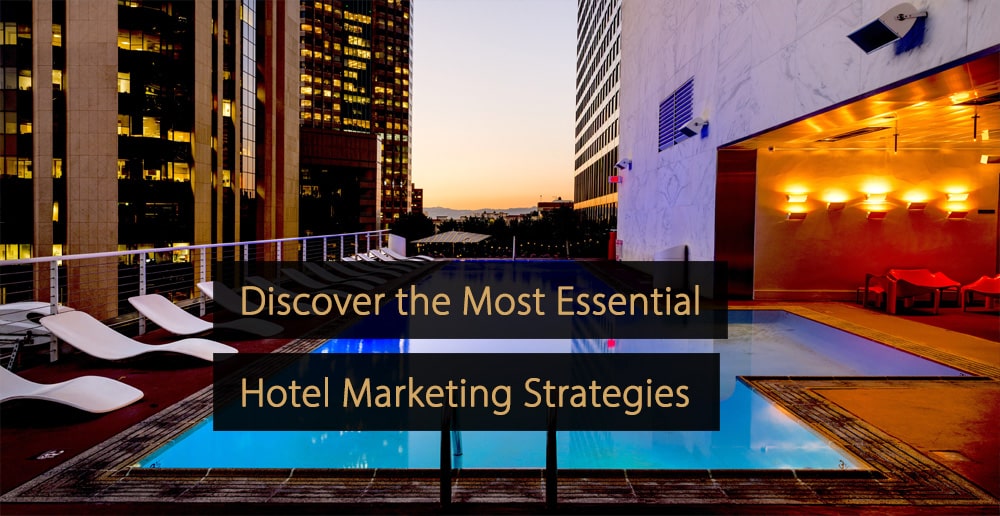
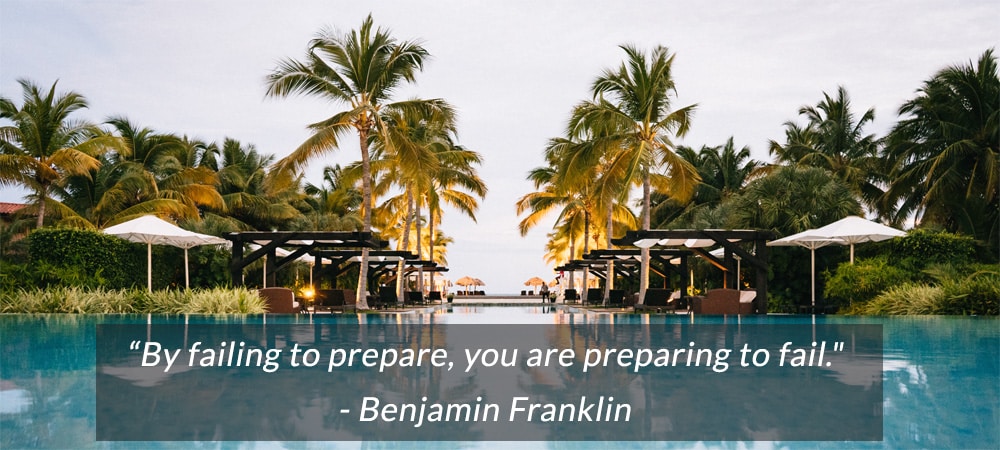
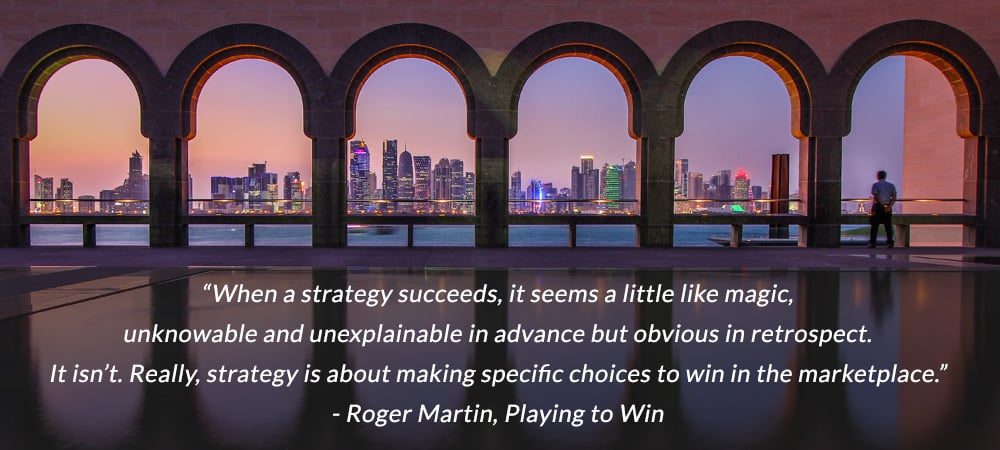
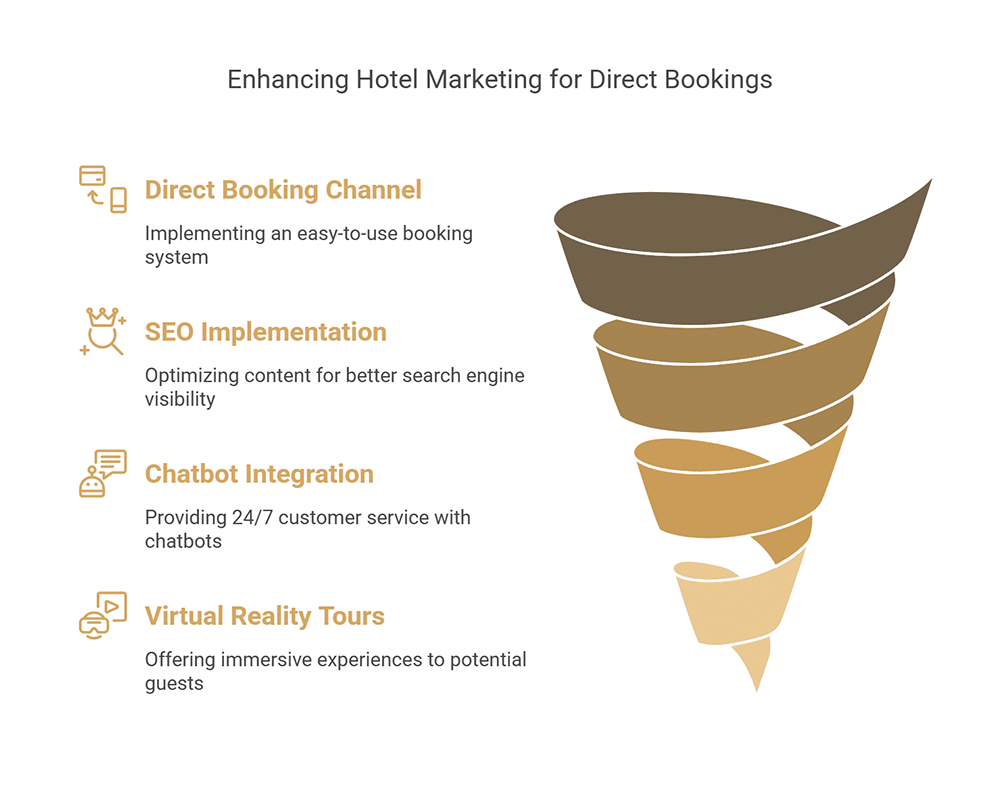

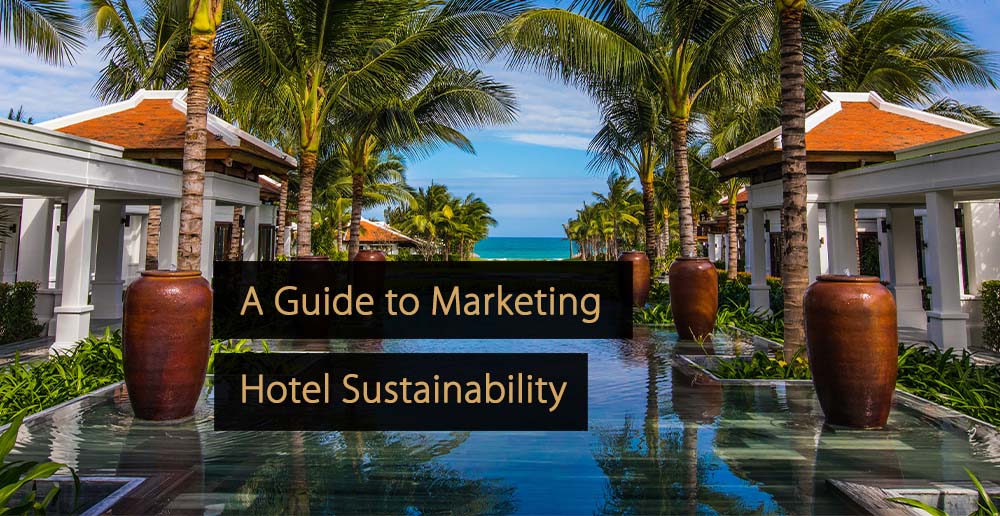

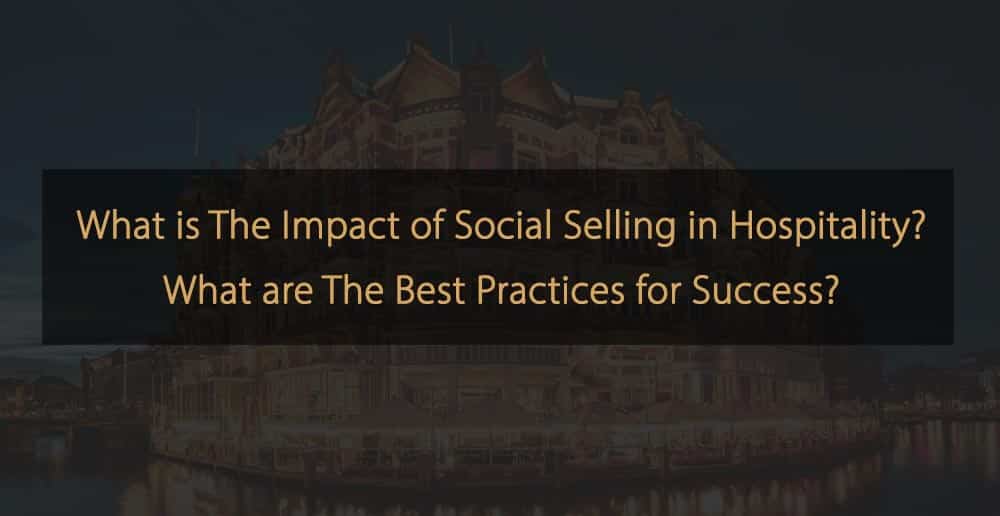


I appreciate the information on this web page. I gained a lot of knowledge about how to market a hotel.
If you are a small business owner, then it is easy to feel like you are lagging behind the competition and need some of the best digital marketing tips.
Its a very informative post. thank you for sharing!
Great Post! These hotel marketing strategies are very useful.
Thanks a lot for your tips. I have improved my marketing skills with the provided knowledge.
Nice blog! I really like the article and strategies for hotel marketing. The tips are very helpful for me. Thanks for sharing.
I read your post about hotel marketing. It is very good.
You have a lot of great knowledge about this topic. Thank you for sharing these strategies with all of us.
Nice article. If the above strategies don’t change your hospitality business, then it never got to get changeable.
Thank you for sharing these hotel marketing strategies. They are very helpful.
Thank you so much for all the information about hotel marketing. It helped me in doing my assignment!
Amazing content, as well as the 5th tip about analyzing data. Again, really good content, kudos to those who created this article.